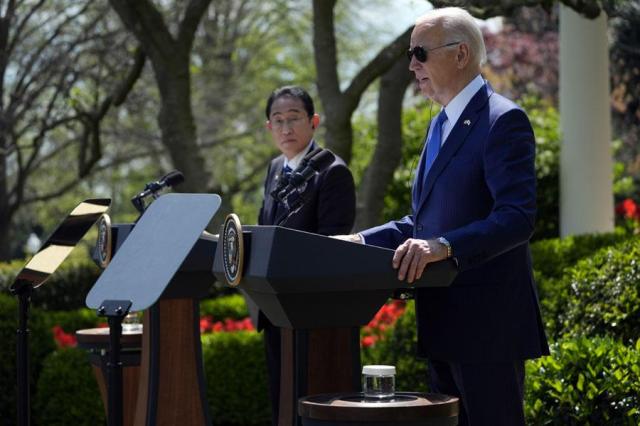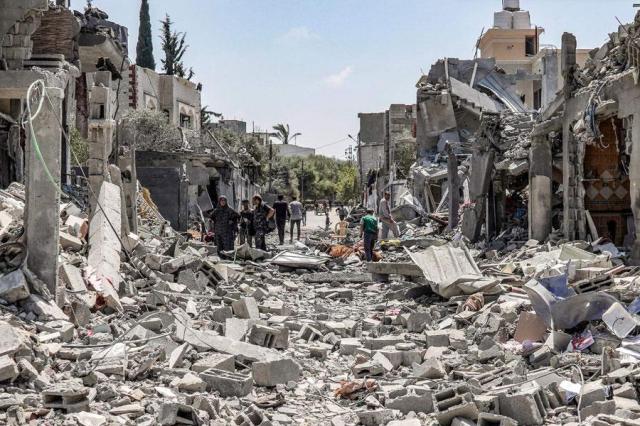
[Yonhap Photo]
SEOUL -- South and North Korea agreed to cease all acts of hostilities against the other side and work on establishing a permanent peace regime that would end confrontation for more than six decades, declaring there would be no more war on the Korean peninsula.
The agreement was reached at a historic summit Friday between South Korean President Moon Jae-in and North Korean leader Kim Jong-un in the truce village of Panmunjom that followed a flurry of sports diplomacy and peace overtures by Kim.
In the so-called Panmunjom Declaration, Moon and Kim declared that there would be no more war on the Korean peninsula and a new era of peace has come. "I am pleased to announce that there is no war any longer on the Korean peninsula," Moon said.
The South Korean leader said the two Koreas set up "an unwavering milestone" for co-prosperity and unification. He agreed to visit Pyongyang this fall.
"Above all, we agreed on practical measures with a firm will to open a new era of prosperity and happiness in a peaceful land without war," Kim said, adding the two Koreas will enjoy "endless prosperity" with Panmunjom, the symbol of division, becoming a symbol of peace, if the two Koreas faithfully implement their agreement.
"If we push hard to the end with a firm will, the door will open wide," the reclusive leader said.
The two leaders confirmed the common goal of achieving a nuclear-free Korean peninsula through "complete denuclearization" and agreed to make active efforts to cooperate with the international community for denuclearization.
"South and North Korea affirmed their shared objective of achieving a nuclear-free Korean Peninsula through complete denuclearization," the joint statement said, describing measures taken by North Korea as "very meaningful and important" for denuclearization.
"It is clear that the South and the North will work more closely together to ensure complete denuclearization," Moon said.
Moon and Kim said the two Koreas would actively cooperate to establish a permanent and well-established peace regime. "Establishing a firm peace system on the Korean peninsula by ending the abnormal current ceasefire is a historical task that can not be delayed any longer," they said.
To convert the armistice into a peace treaty, the two leaders agreed to push for three-way talks involving the two Koreas and the United States or a four-way meeting involving the two Koreas, China and the United States on converting the armistice into a peace treaty.
Moon described the peace treaty as "a very important agreement that can fundamentally change the international order" around the Korean peninsula.
The two sides reaffirmed a non-aggression accord adopted earlier and promised to gradually realize disarmament. From May 1, they will stop hostile acts along the border to turn the demilitarized zone into a genuine peace zone. "The demilitarized zone which straddles across the Korean peninsula will become a real peace zone," Moon said.
The two sides agreed to hold frequent military dialogue, starting with general-level military talks in May. They will make practical measures to prevent accidental conflicts and ensure safe fishery activities by making a peace zone in disputed waters off the west coast.
To put an early end to division and confrontation, the two leaders agreed to resume high-level talks quickly, push for the reunion of separated families on the occasion of August 15, and take practical measures to connect and modernize severed cross-border railways and roads.
The two Koreas confirmed the principle of "self-determination" that their fate should be determined by themselves. For smooth exchanges and cooperation, they agreed to establish an inter-Korean joint liaison office in the North's border city of Kaesong, the venue for the closed inter-Korean industrial zone.




